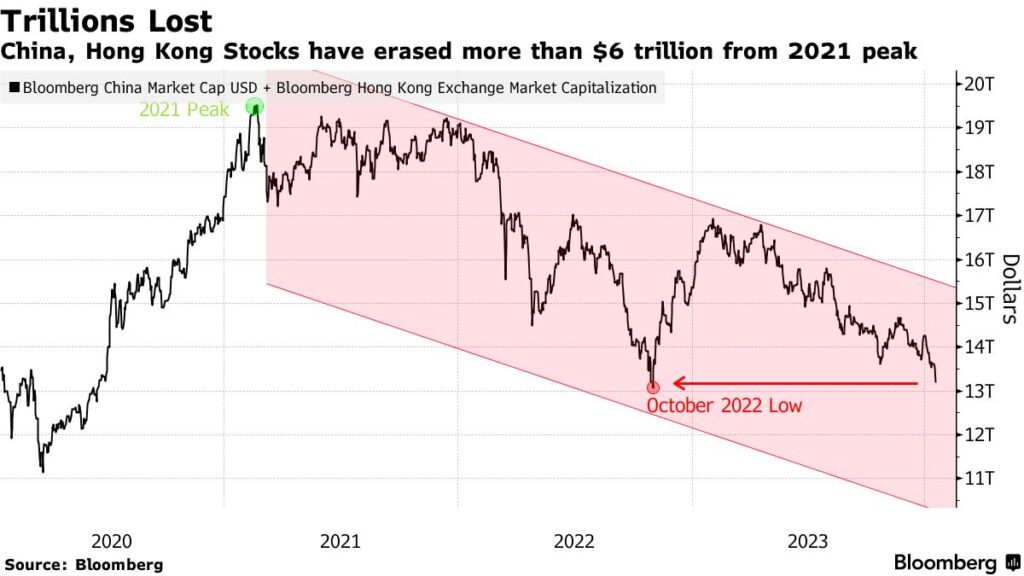Chinese stocks concluded another challenging week, with a gauge of mainland firms listed in Hong Kong ranking at the bottom of global equity index performances for the current year.
Recent developments have added to the negative outlook: Tokyo has surpassed Shanghai as Asia’s largest equity market, and India’s valuation premium over China has reached a record high. Locally, a meltdown in Chinese shares is causing significant disruptions in the nation’s asset management industry, leading to mutual fund closures reaching a five-year peak.
The Hang Seng China Enterprises Index has already experienced an 11% loss in 2024. Following a record four-year losing streak, this decline underscores a structural shift where both active money managers and passive funds are turning away from the world’s second-largest stock market.
The Nasdaq Golden Dragon China Index slipped as much as 2.2% at the beginning of US trading on Friday, extending losses for a fifth consecutive day.

A staggering $6.3 trillion has been erased from the market value of Chinese and Hong Kong stocks since their peak in 2021, highlighting the significant challenge Beijing faces in restoring investor confidence. Despite the decline, authorities have ruled out extensive stimulus measures to revive the economy, leaving traders uncertain about when improvement may occur.
John Lin, AllianceBernstein’s chief investment officer of China equities, noted that the trends seen this year are a continuation of those observed in the previous year. The modest stimulus measures applied so far have been unable to reverse the underlying fundamentals, especially in areas like the property sector.
The HSCEI gauge plummeted more than 6% this week, on track to record its worst January performance in eight years. The mainland’s CSI 300 Index has dropped in nine of the last 10 weeks. Challenges include ongoing issues in China’s real estate sector, building deflationary pressures, and unresolved tensions between Beijing and Washington. Recent uncertainties about US interest rates and the threat of a potential blowout in local stock derivatives have intensified investor concerns.
According to the latest Bank of America survey, Asian fund managers have reduced their allocation to China by 12 percentage points to a net 20% underweight, the lowest in more than a year. Benchmark-tracking fund managers have sold a net $300 million of shares in mainland China and Hong Kong this month, reversing the trend from the latter half of 2023.
Despite attractive valuations, the loss of confidence has hindered a short-term rebound. The MSCI China Index is at its cheapest versus the S&P 500 from a forward earnings estimate perspective. Beijing’s efforts to reassure investors have been met with skepticism, as concerns persist about the need for a more significant fiscal response to support the economy.

